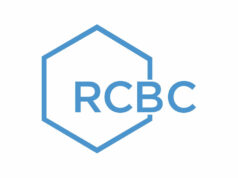Reducing risk through tech innovation
PAJU CITY, South Korea — The threat of a nuclear conflict in the Korean Peninsula has greatly diminished with the adoption of the Panmunjom Declaration for Peace, Prosperity, and Reunification that includes a commitment to denuclearization.
South Korean President Moon Jae-in and North Korean supreme leader Kim Jong-un signed the declaration during the 2018 Inter-Korean Summit held at the Peace House’s southern side within the joint security area of the demilitarized zone (DMZ), which is geographically a part of this border city.
As a buffer zone measuring two kilometers wide on each side, the 250-kilometer long DMZ was established along the 38th parallel through an armistice agreement at the end of the Korean War in 1953. The DMZ’s western portion lies on the boundary between Paju City and its northern neighbor, Kaesong City.
With the warming of bilateral relations in the divided peninsula, the Korea Harm Reduction Association (KHRA) has turned its attention to public health hazards such as narcotics, alcohol, smoking, gambling, and obesity.
Last week, KHRA co-hosted the 3rd Asian Harm Reduction Forum (AHRF) in Seoul together with Yayasan Pemerhati Kesehatan Publik of Indonesia. Attended by hundreds of experts from 18 countries, the theme of AHRF 2019 was “From Global to Local: Public-Private Partnerships in Harm Reduction Policies.”
One of the keynote speakers was Canadian lawyer David Sweanor, who is also a professor and advisory board member of the Center for Health Law, Policy, and Ethics at the University of Ottawa. Since the 1980s, he has focused on policy issues concerning the risk of smoking, which he referred to as a public health catastrophe killing one person every 4.5 seconds.
According to Mr. Sweanor, “the problem is not the nicotine but the delivery system. There are over a billion people in the world who seek nicotine by smoking cigarettes, which kills people because they breathe in smoke. If we get rid of the smoke, we get rid of the disease.”
He said Asian innovators have the capacity to improve the technology behind non-combustible tobacco products similar to how Korean automobile makers and Japanese electronics manufacturers became dominant in the global arena. These innovations have a tremendous impact on public health by dramatically reducing the rate of smoking cigarettes as experienced in Japan, Iceland, and the United Kingdom.
Greek cardiologist Konstantinos Farsalinos, concurrently a researcher at the Onassis Cardiac Surgery Center in the University of Patras’ National School of Public Health, agreed that harm reduction is an absolute necessity because eight million people die prematurely every year from smoking-related diseases.
“It is a huge burden for the whole world. Due to the difficulty in quitting smoking, tobacco harm deduction represents a historical opportunity to eliminate smoking globally. Governments should realize that harm reduction is a human right enshrined in the World Health Organization’s 1986 Ottawa Charter for Health Promotion,” he said.
Consumer groups across the region have formed the Coalition of Asia Pacific Harm Reduction Advocates (CAPHRA) to address public health issues and encourage smokers to shift to safer alternatives if they could not quit outright.
During the AHRF 2019, coalition representatives signed the Seoul Declaration calling on the governments of the Philippines, Thailand, and India to reconsider plans of banning or imposing restrictive polices on e-cigarettes, heat-not-burn devices, and Swedish “snus” or teabag-like smokeless powder products made of tobacco, salt, and sodium carbonate.
CAPHRA executive coordinator Nancy Sutthoff urged the Philippine government to recognize that non-combustible products provide smokers with an option to quit smoking and could hasten the demise of cigarettes. She cited annual reviews of Public Health England, which have consistently concluded that e-cigarettes are significantly safer than tobacco burning.
“Safer nicotine products should be encouraged, not attacked with the same vehemence as cigarettes or, worse, banned. The government of the Philippines should avoid being perceived as promoting the interests of the cigarette and pharmaceutical industries,” the declaration stated.
In today’s fast-paced business environment, technological innovation is disrupting risk management in many industries. A recent survey conducted by global insurance broker Marsh found 91% of risk professionals believe that understanding technology innovation is essential for them to remain at the forefront of their industry.
Firms and individuals thus have to make a hard choice in the digital era: innovate or perish. This applies to everyone, whether in banking, financial services, health care, manufacturing, government, or other sectors. In other words, one should disrupt — or risk getting disrupted.
J. Albert Gamboa is CFO of the Asian Center for Legal Excellence and Chairman of the FINEX Golden Jubilee Book Project.



